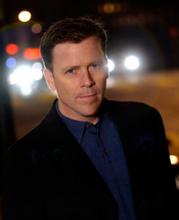What Is It
In the Middle Ages, people married, had children, went off to war and took on all the traditional trappings of adulthood by their early teens. But today many people put off those trappings until well into their thirties. Some have even suggested that we need a new vocabulary to describe the variety of life stages experienced by 21st century humans. John and Ken explore the new adulthood with Ethan Watters, author of Urban Tribes: A Generation Redefines Friendship, Family, and Commitment, in a program recorded in front a live audience at the Marsh Theater in Berkeley, California.
Listening Notes
John and Ken kick off the conversation by questioning our common assumption about what an adult is. To understand what humans are, perhaps we need to know what we expect from fully mature human beings – in other words, know what it means to be an adult. But our understanding of what adults should do, what adults are, is changing. John relates that when he was growing up, you became an adult when you got married, fell in love, started a family and began to pay taxes–all in your twenties. Now, the “adults” on Seinfeld or Friends are not settling down in that way. Are these people adults? Adultescents? Are we living in a society that has stalled growing up?
Ethan Watters joins Jon and Ken to discuss the business of being an adult. Ethan wrote the book Urban Tribes while confronting the stark differences between his own generation and the experiences of his parents. People living in these “urban tribes” are relying on their friendship groups more strongly, living apart from their families without starting new families of their own.
Ken remarks that the people living in these urban tribes are also foregoing many of the responsibilities that come with being an adult – when will they become productive members of society? John wonders, as Bertrand Russell once argued, is this shift towards later marriage is just a more rational move on the part of this generation? Ken and Ethan also suggest that our psychology has changed with our changing understanding of what twenty-somethings should be doing. Biologically, adulthood might seem to happen at a fixed point, but it in fact appears that the stages of human life change with time and depending on culture. Is this extended stage between adolescence and settling down with a family a bad thing? Ethan suggests that it is just an extended period of learning that happens as people figure out how to navigate the world away from one’s family.
John, Ken, and Ethan discuss kidults, having children, and the economy with their Marsh audience. How are the older generation and the younger generation responding to the changing norms of adulthood? The discussion continues to probe when and why urban tribes form, who composes these urban tribes, and where women’s empowerment fits into the mix. Ethan ends the show by framing our changing ideas of adulthood as a changing story that narrates our lives. As people take longer to settle down, living in an urban tribe has become an acceptable way to live and make positive contributions to society.
- Roving Philosophical Reporter (5:30): Caitlin Esch discusses adulthood, marriage, and children with two women of different generations, Eve Ekman and Lynne Kaufman. How are the lives of adults different today?
- 60-Second Philosopher (49:30): Ian Scholes rapidly discusses children who act too adult and adults who act too much like children. These paradigms become mixed together – often in the most hilarious ways.



